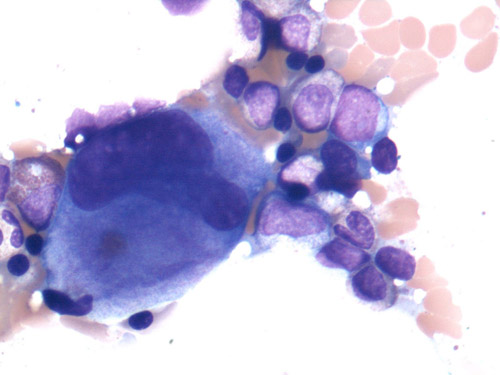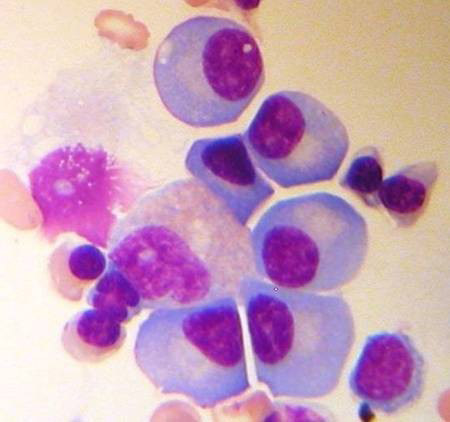Approved by the Cancer.Net Editorial Board, 07/2022
About multiple myeloma
Myeloma is a blood cancer of cells found in the bone marrow, specifically the so-called “plasma cells.” The bone marrow is the spongy tissue inside your bones that normally creates the different parts of your blood. Plasma cells are a key part of the body’s immune system. They produce antibodies that help the body fight infection. Myeloma begins when healthy plasma cells change and grow out of control. This may result in multiple bone lesions that increase the risk of bone fractures.
Abnormal plasma cells can crowd out or suppress the growth of other cells in the bone marrow, including red blood cells, white blood cells, and platelets. They also reduce the creation of normal plasma cells, which lowers a person’s immunity. This suppression may result in:
- Anemia, from a shortage of red blood cells
- Excessive bleeding from cuts to the skin, from a shortage of platelets
- Decreased ability to fight infection, from a shortage of white blood cells and the body’s inability to respond to infection because of the presence of abnormal antibodies
It is important to note that, like regular plasma cells, myeloma cells can produce antibodies. But myeloma cells are unable to produce healthy, functioning antibodies. Instead, they make what is called “M protein,” also called “monoclonal protein” or “monoclonal immunoglobulin.” M protein can build up in the blood and urine, potentially damaging the kidneys and other organs, as well as reducing immunity. A healthy person who is found to have a small amount of this M protein is said to have monoclonal gammopathy of undetermined significance (MGUS).
Myeloma causes structural bone damage, which can result in weakened bones and leads to painful fractures or bone breaks over time.
Solitary plasmacytoma is a mass, or tumor, of myeloma cells that involves only 1 site in the bone or, less commonly, in other organs, such as those in the upper respiratory tract, including the nose and throat, or the gastrointestinal system.
Extramedullary plasmacytoma describes myeloma that started outside the bone marrow in locations such as the lymph glands, sinuses, throat, liver, digestive tract, or under the skin.

